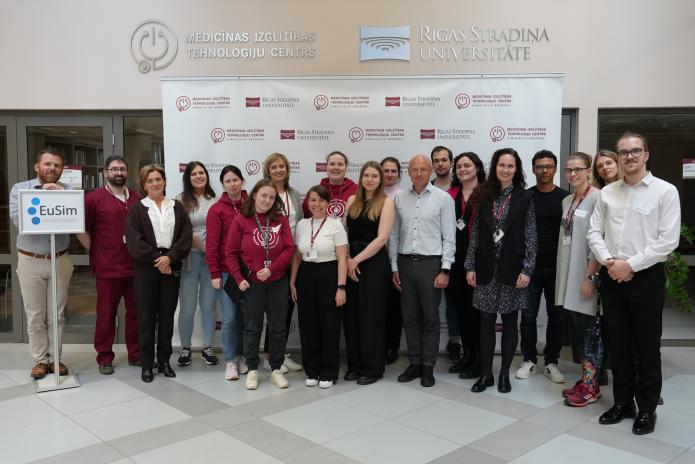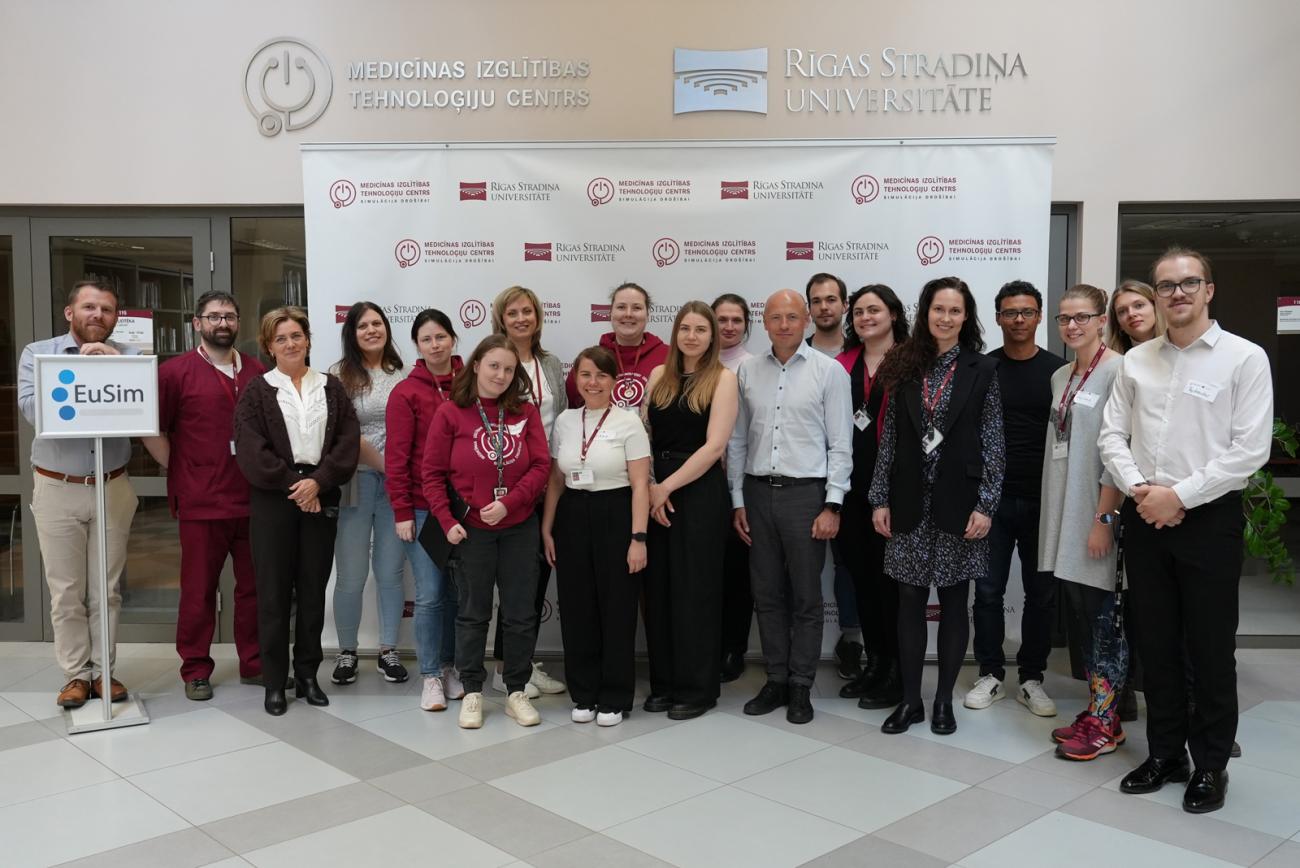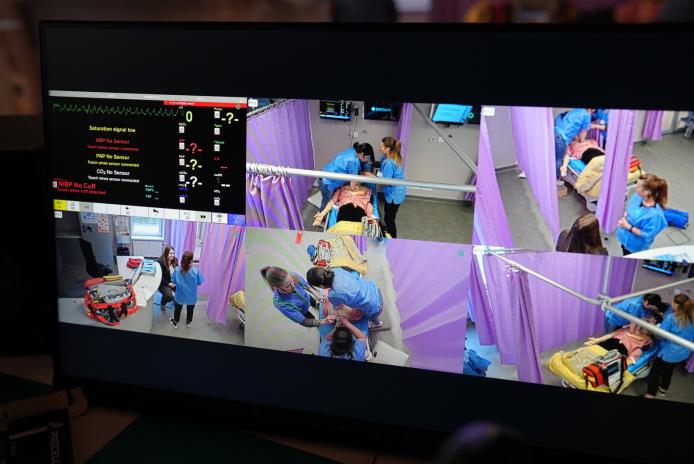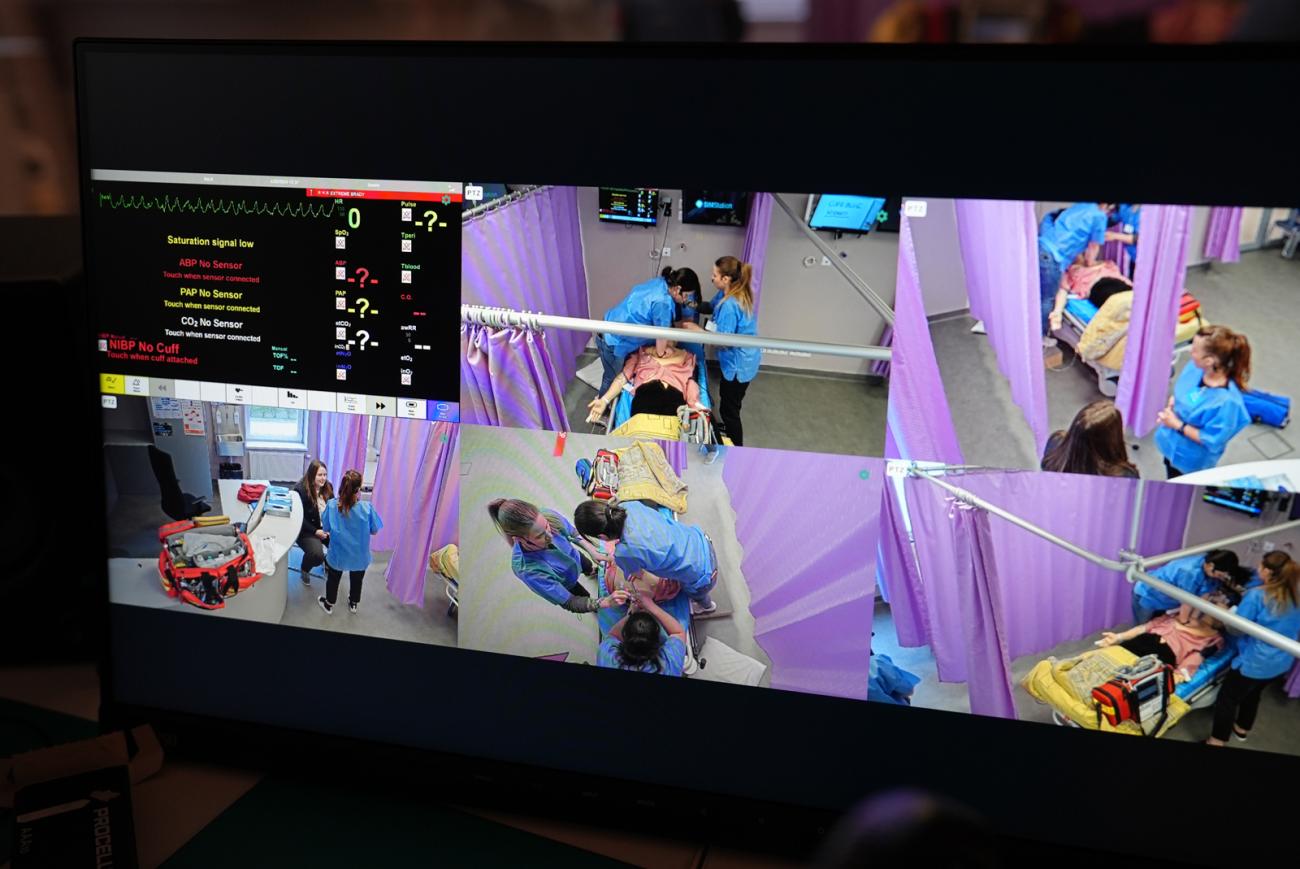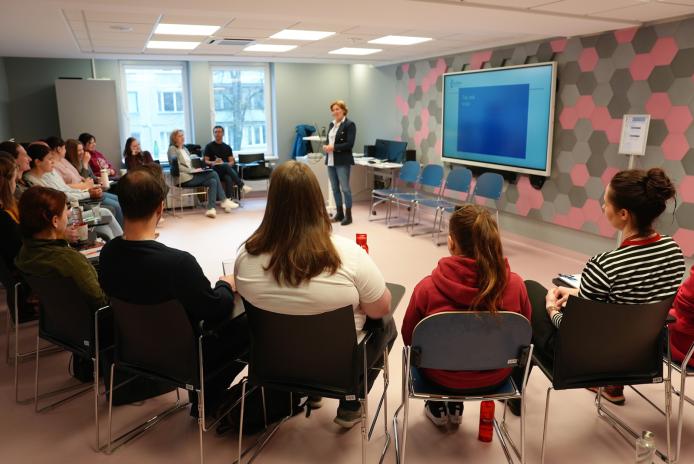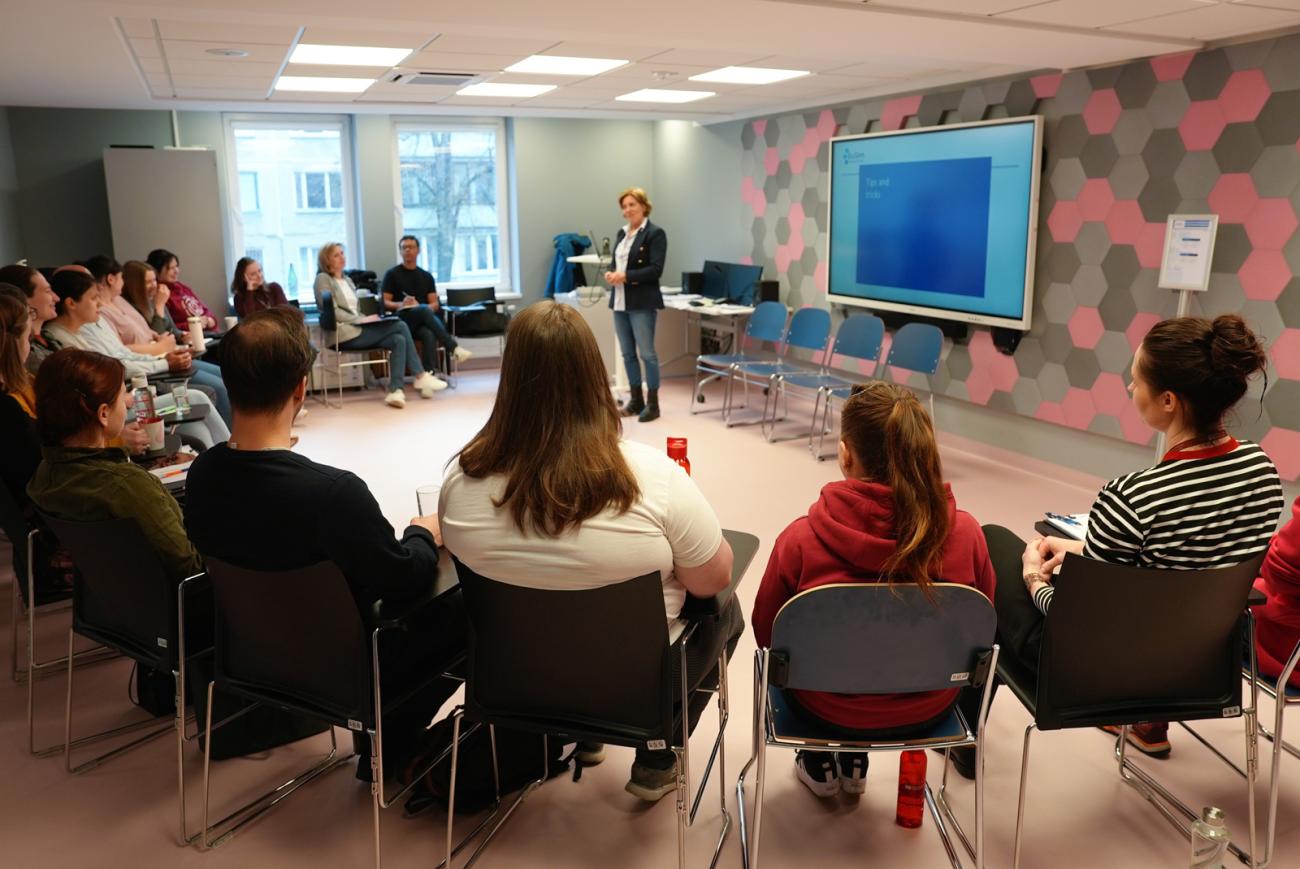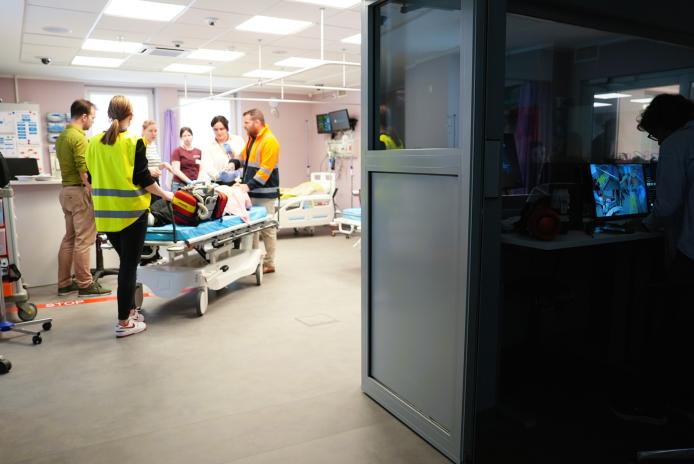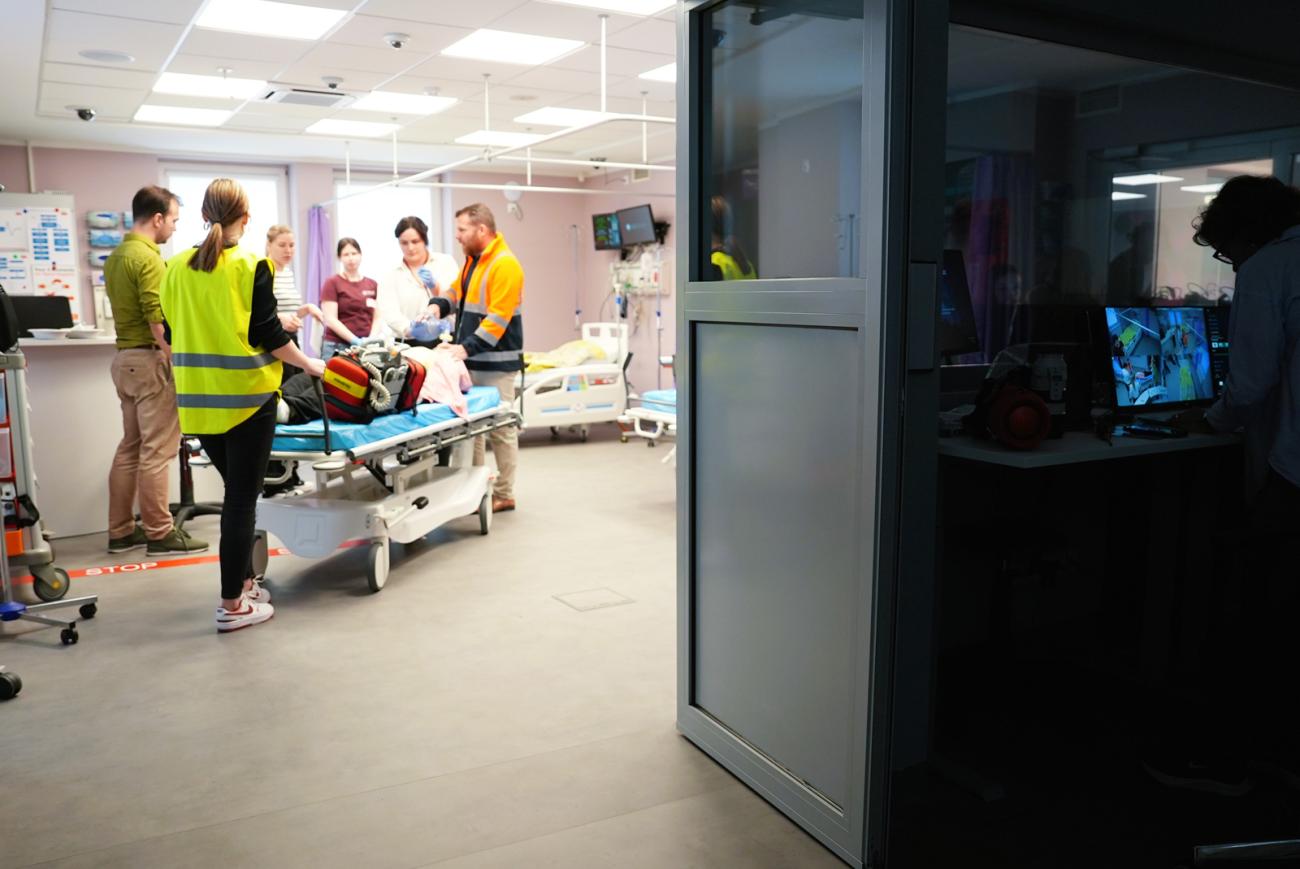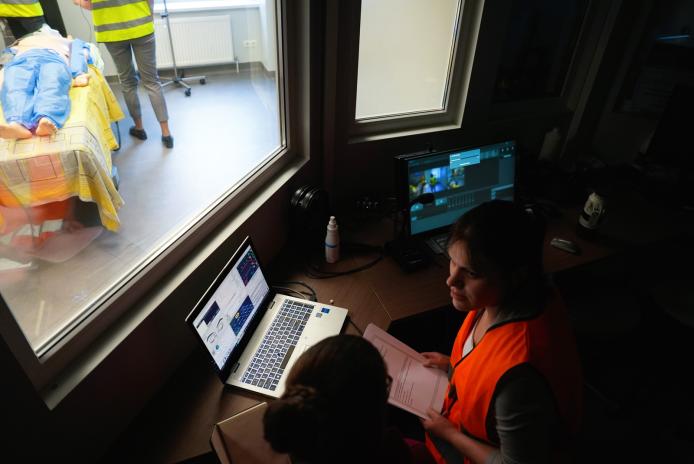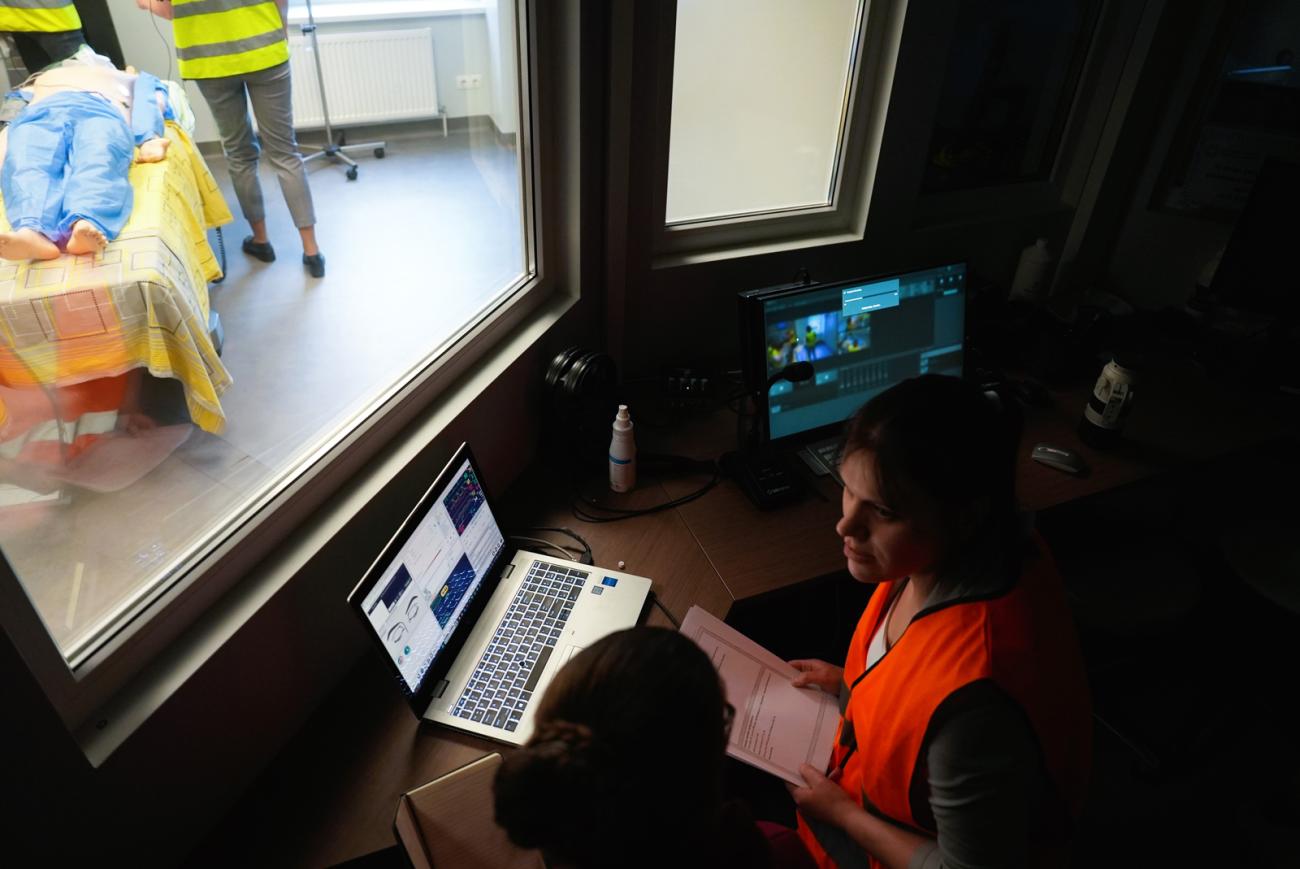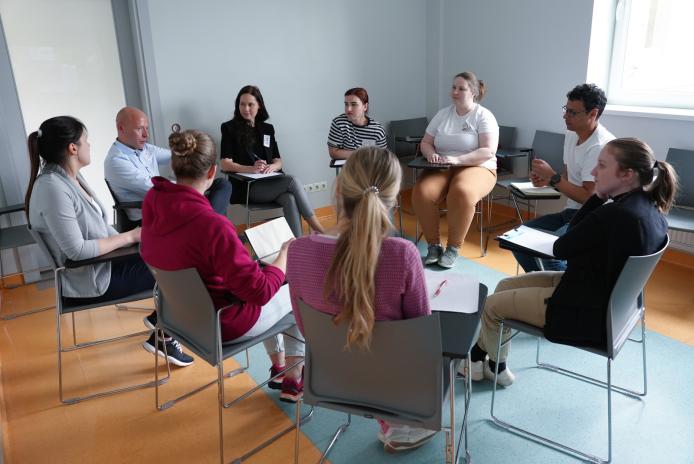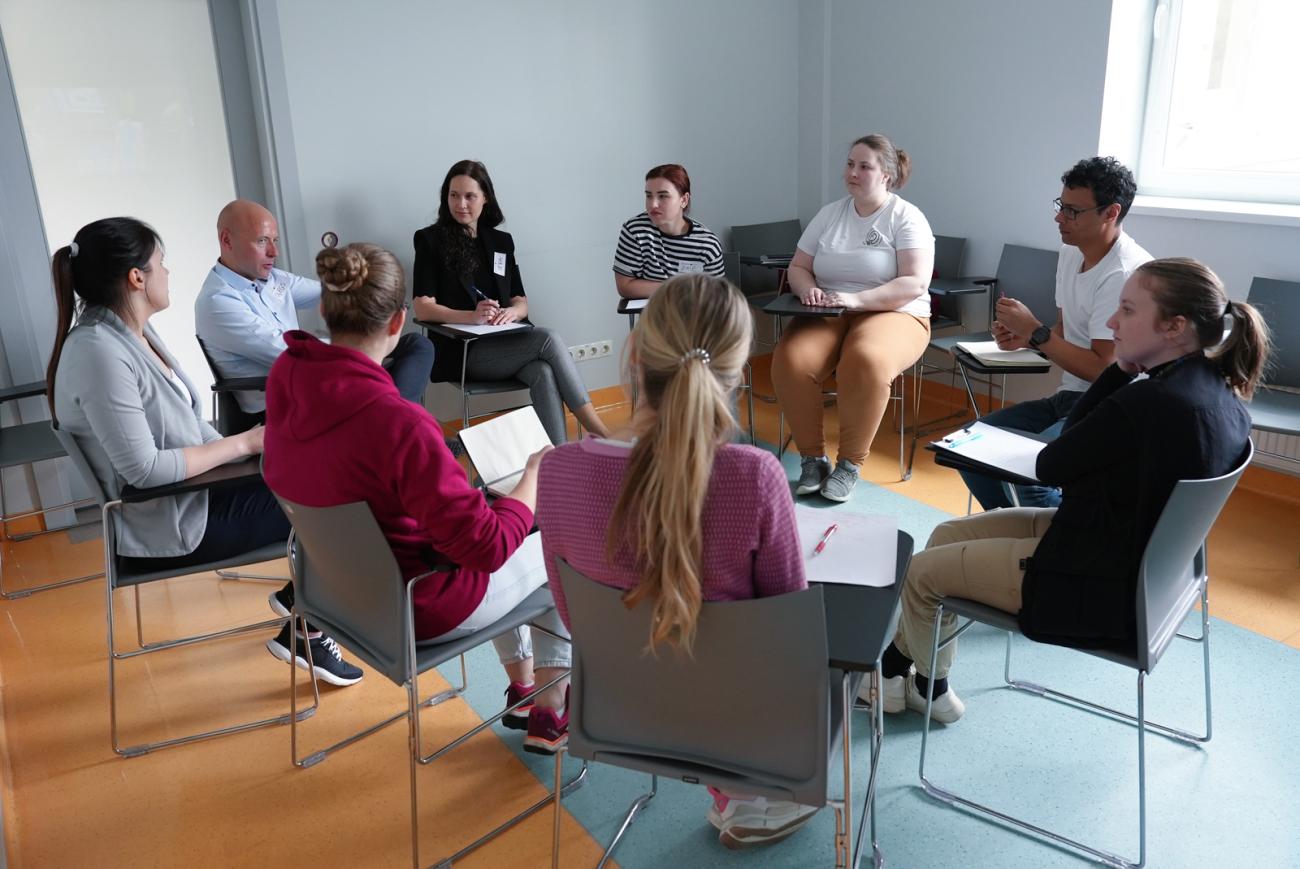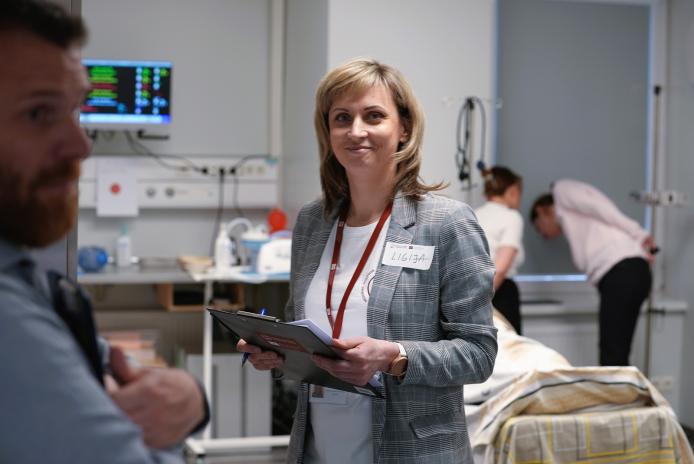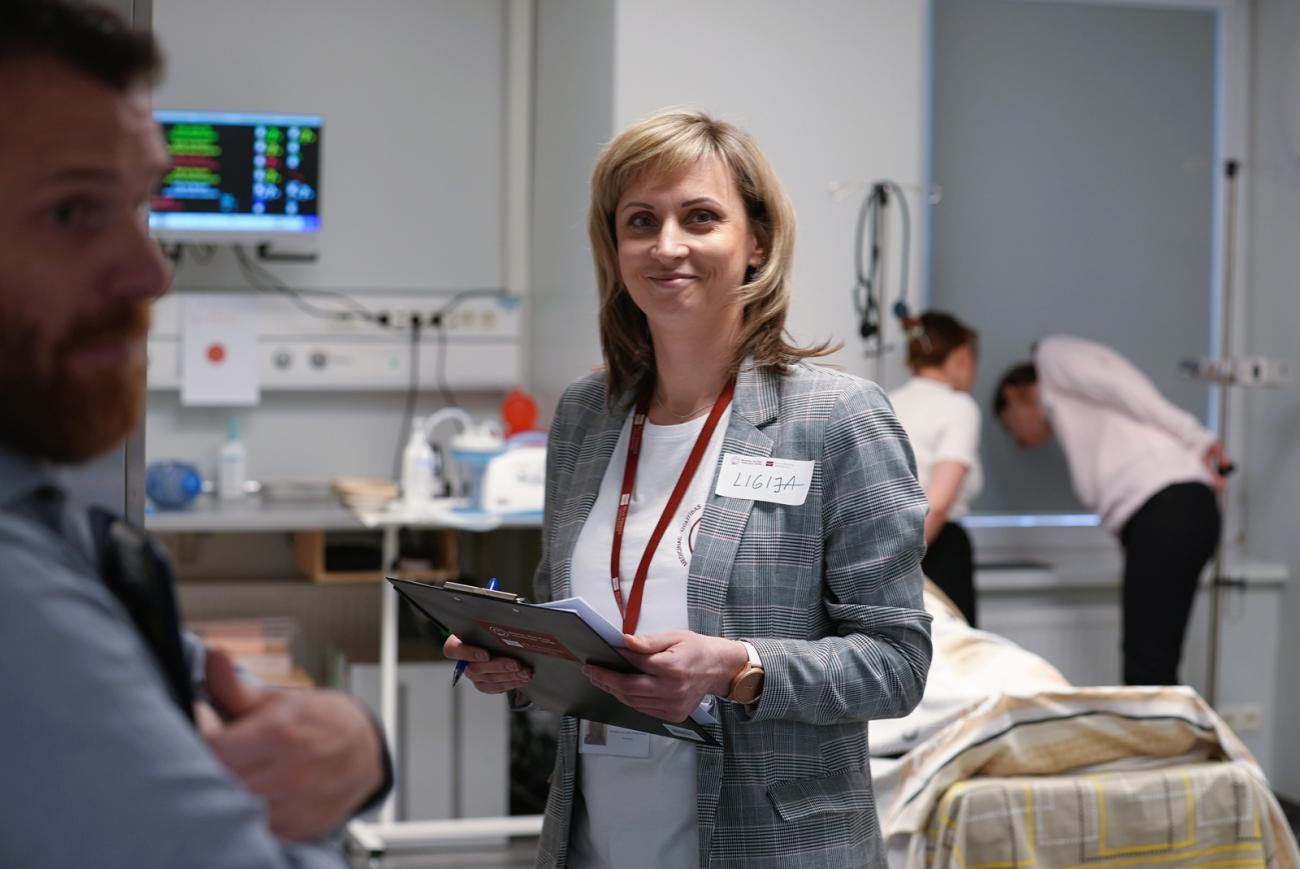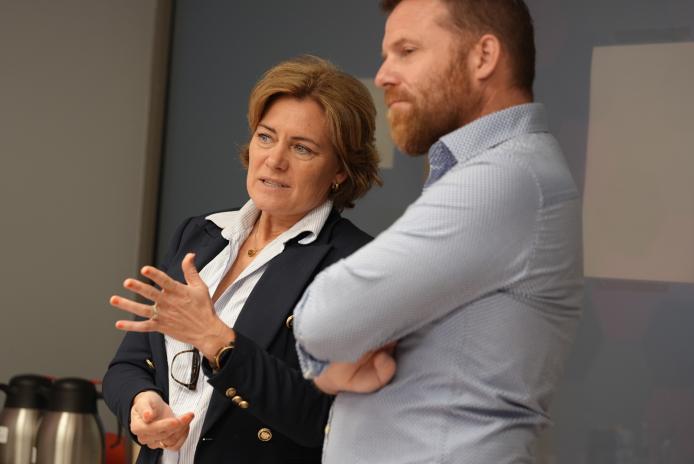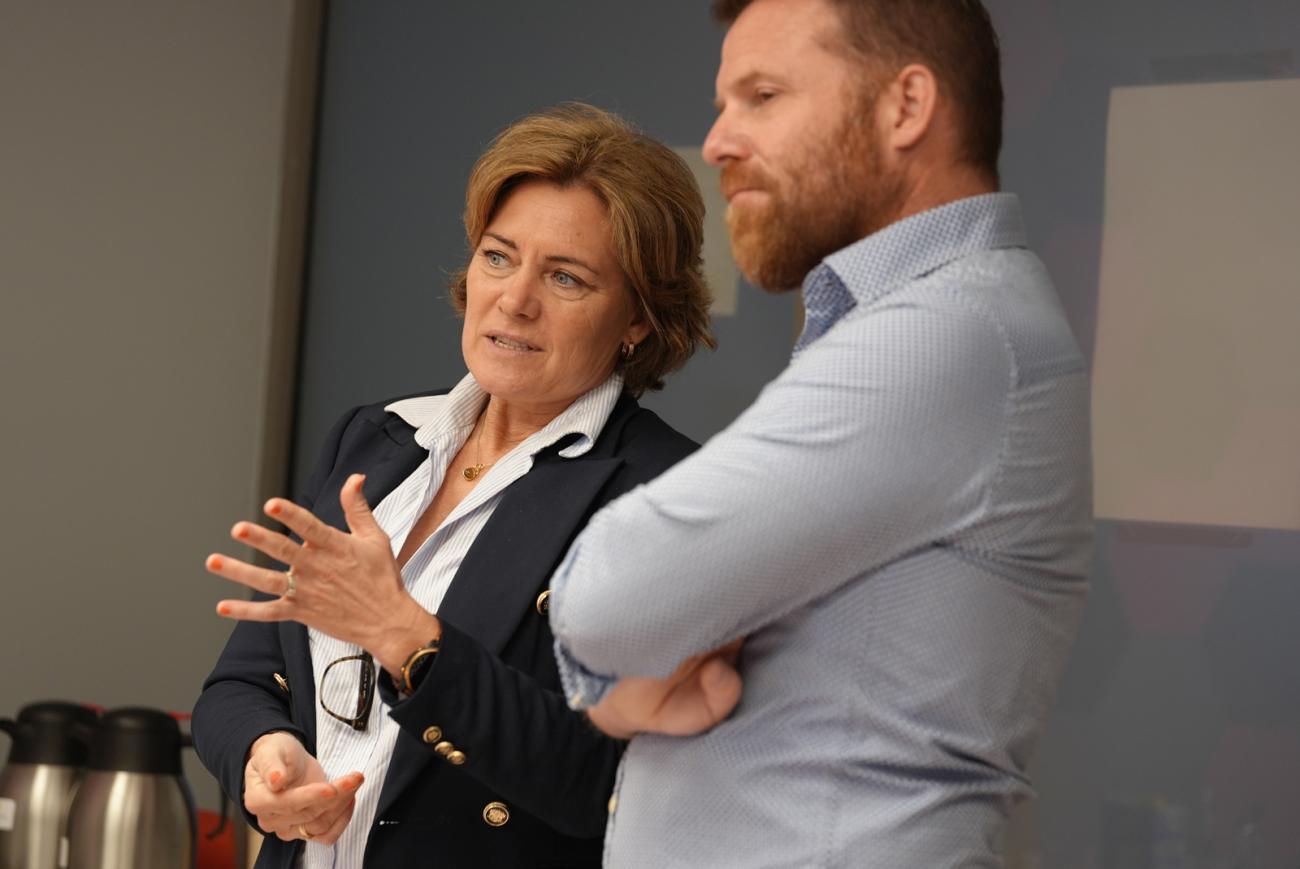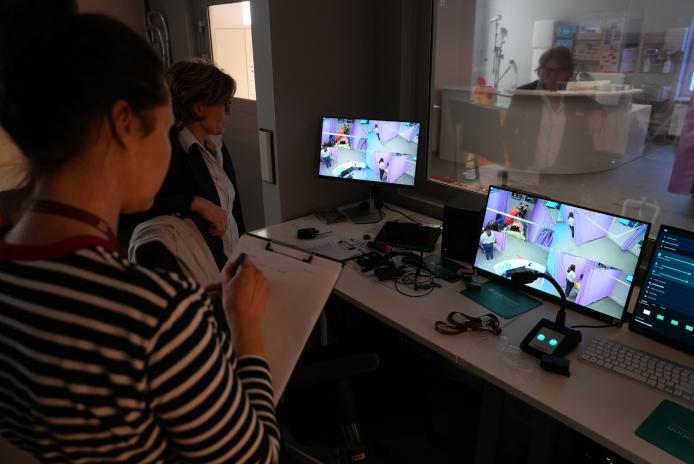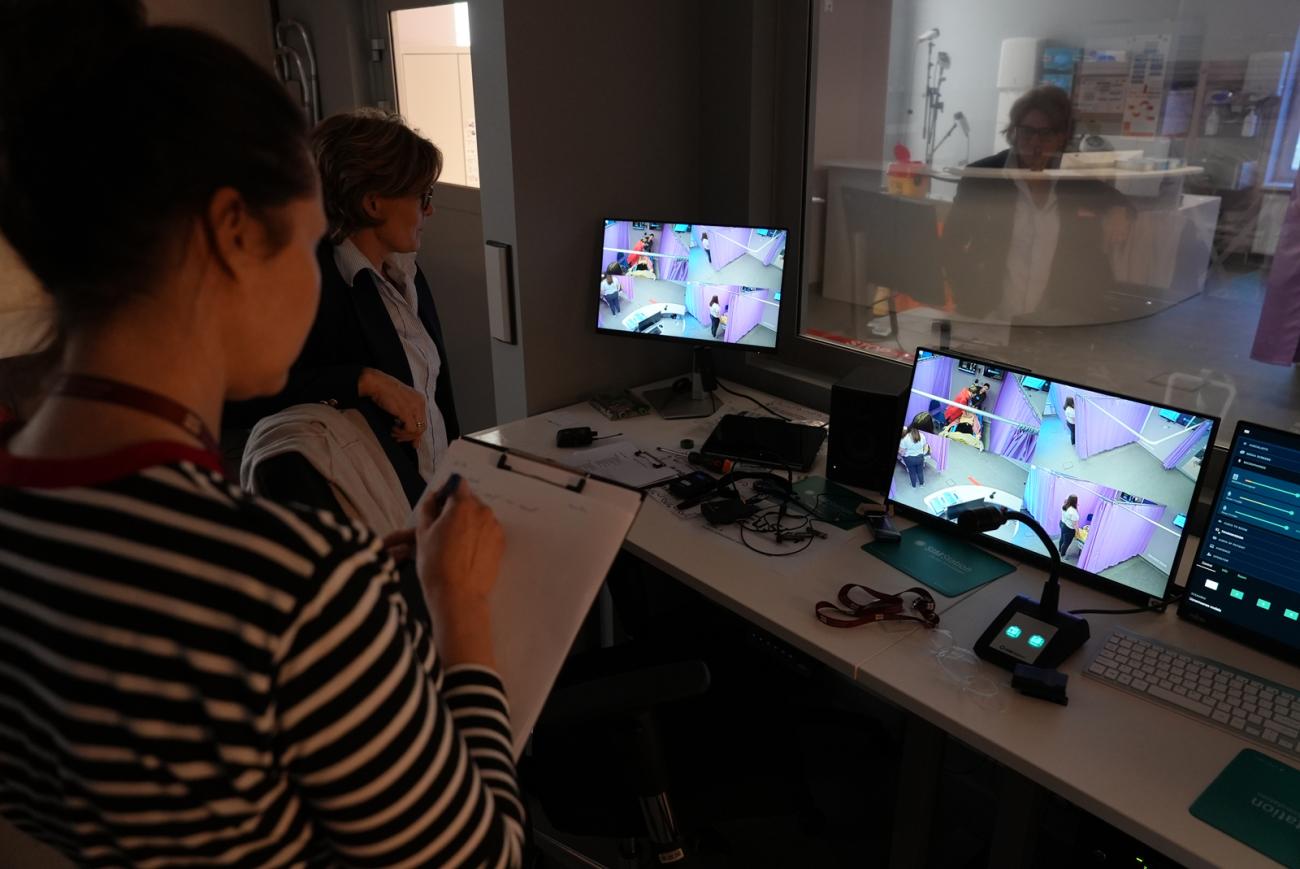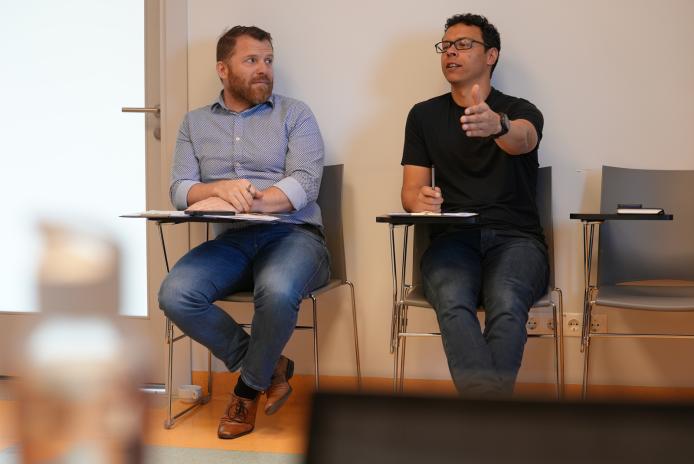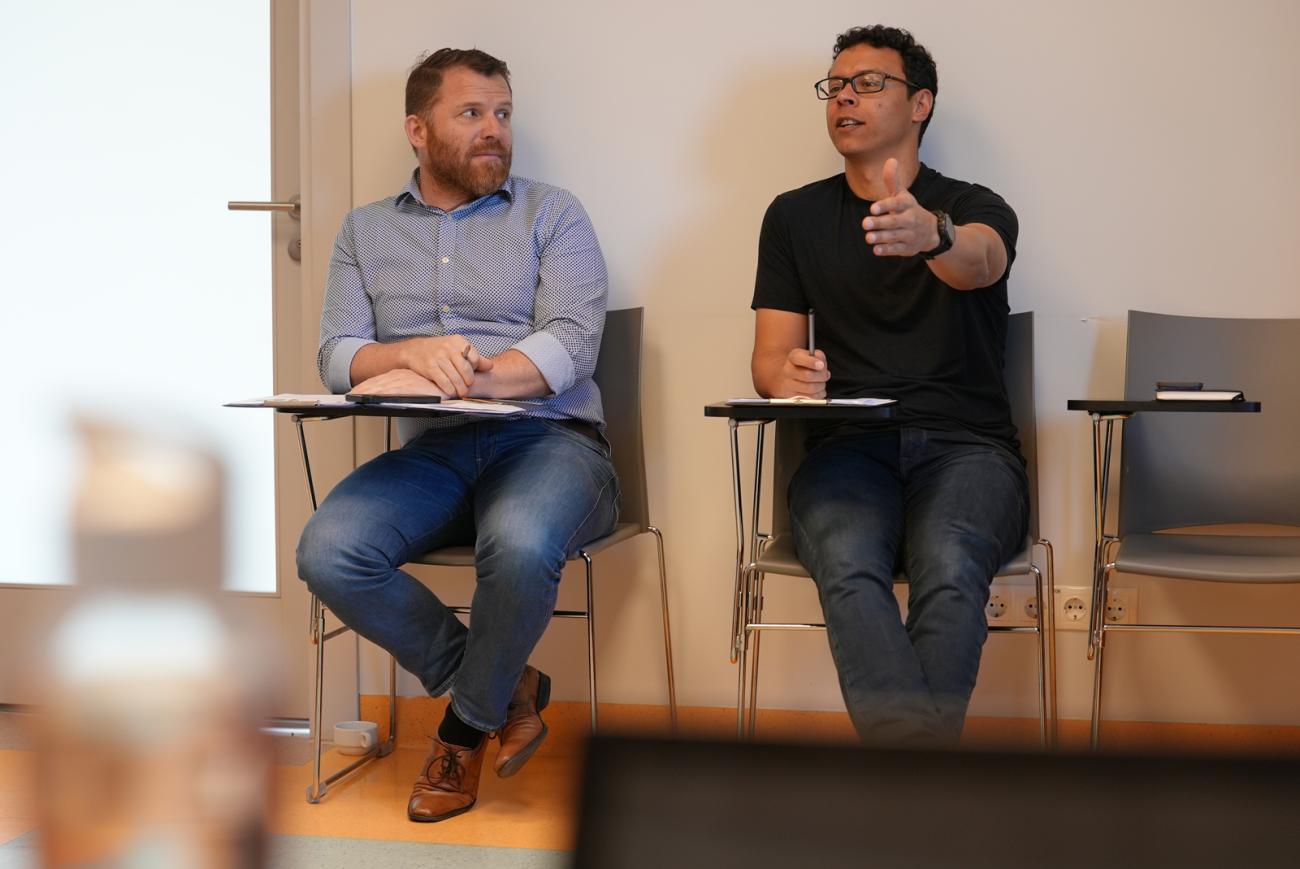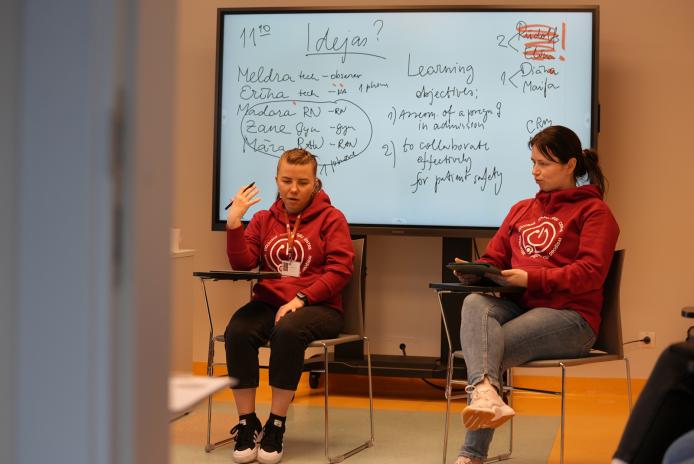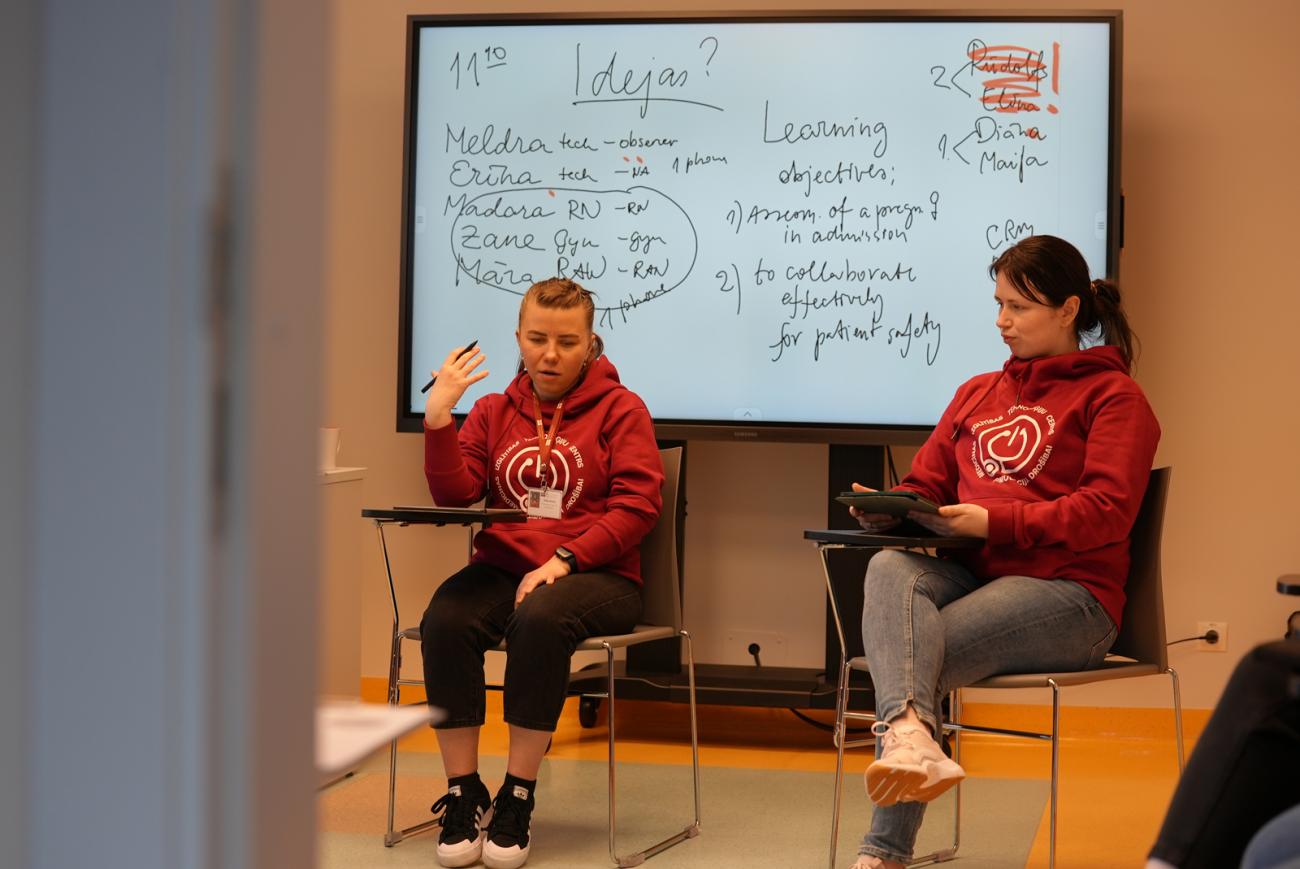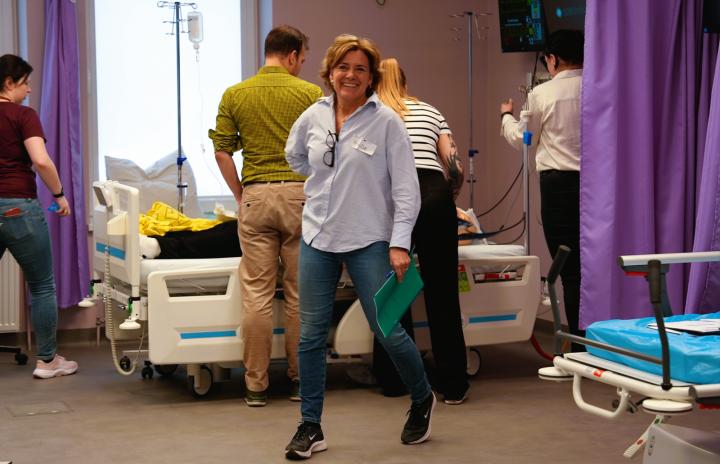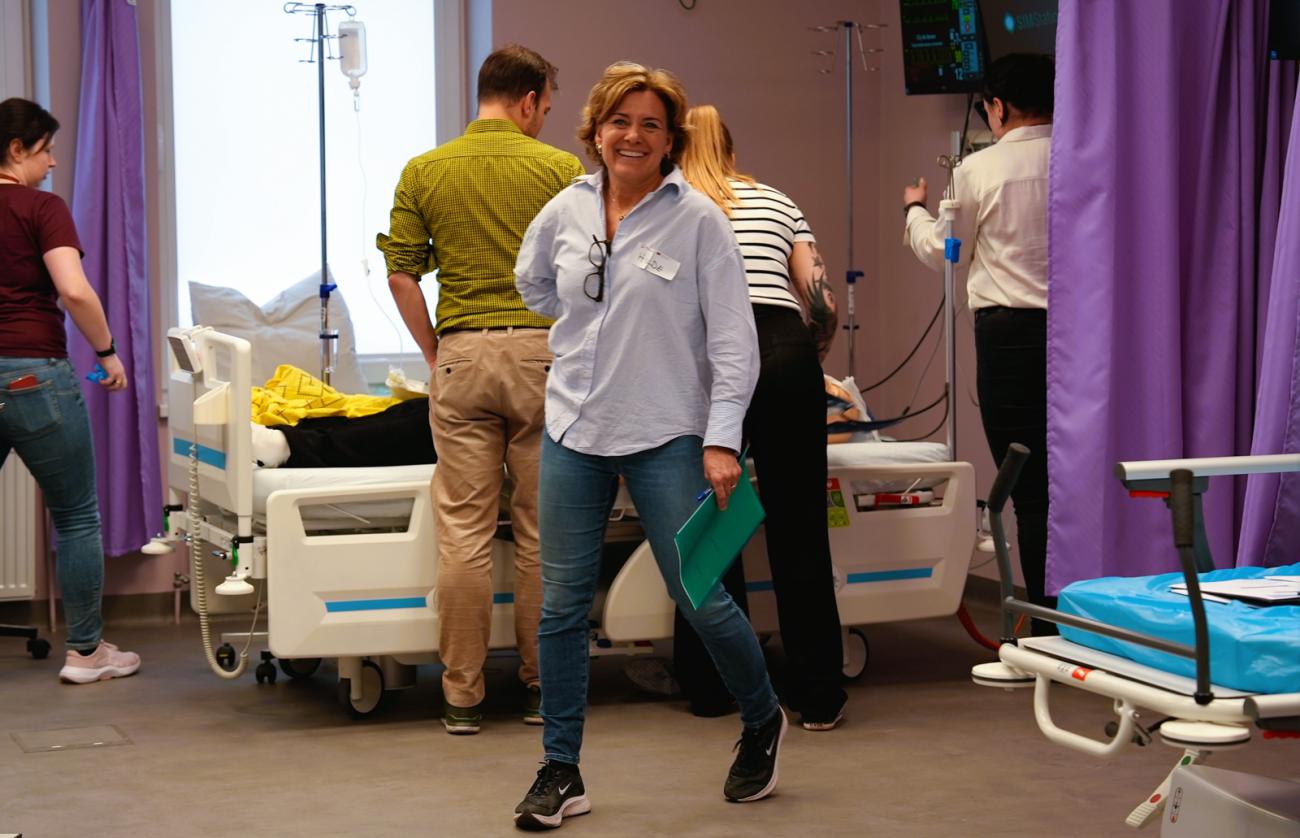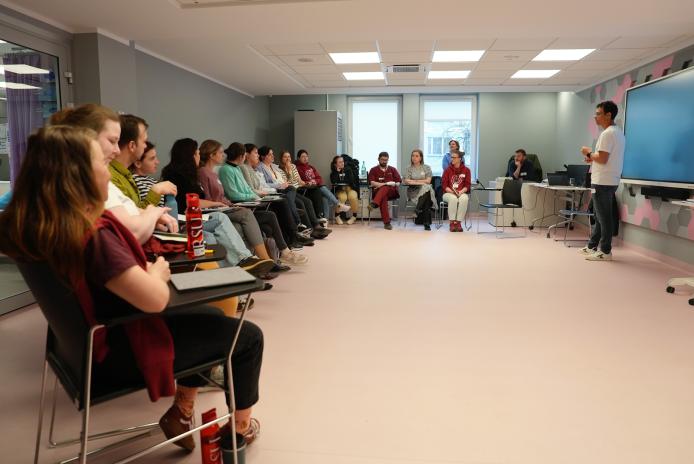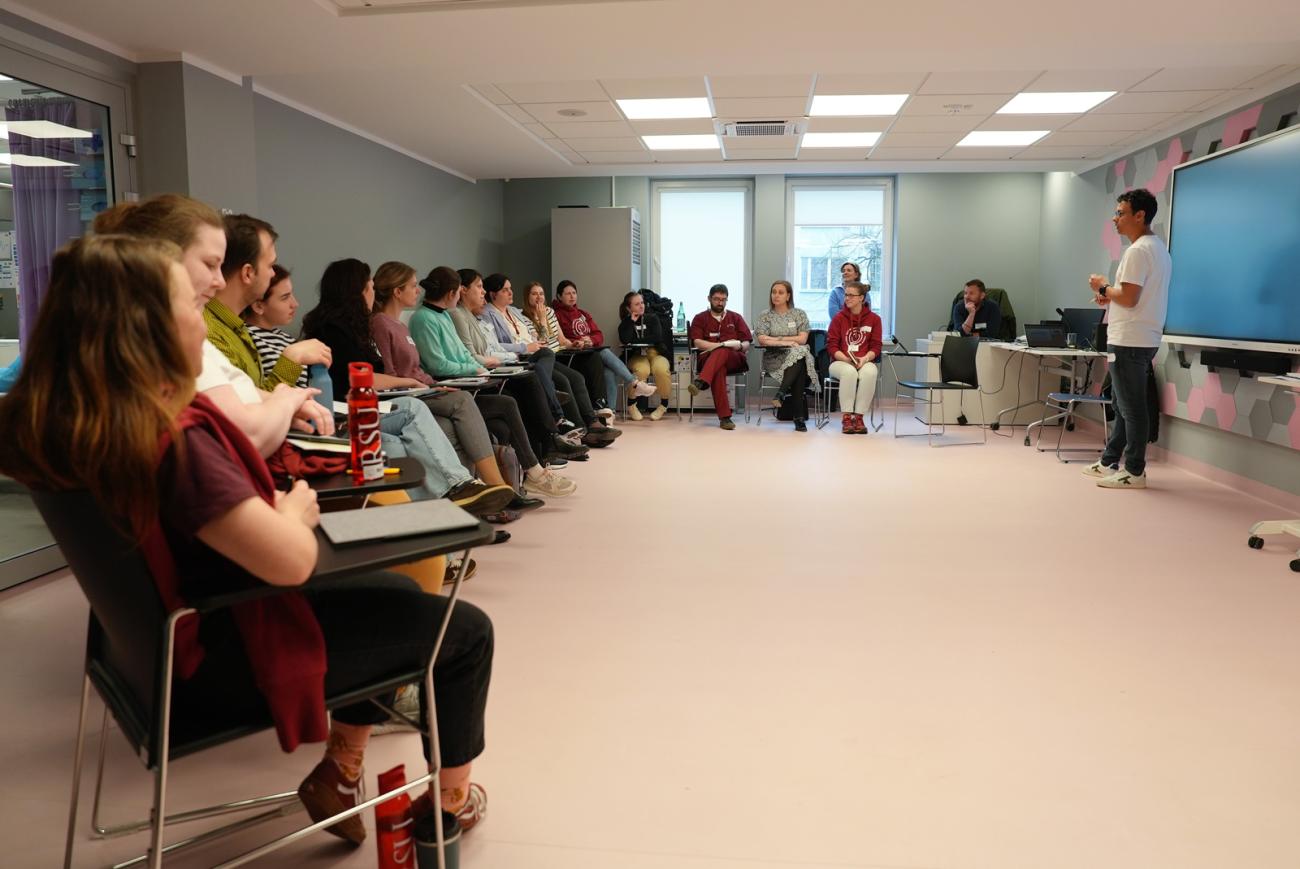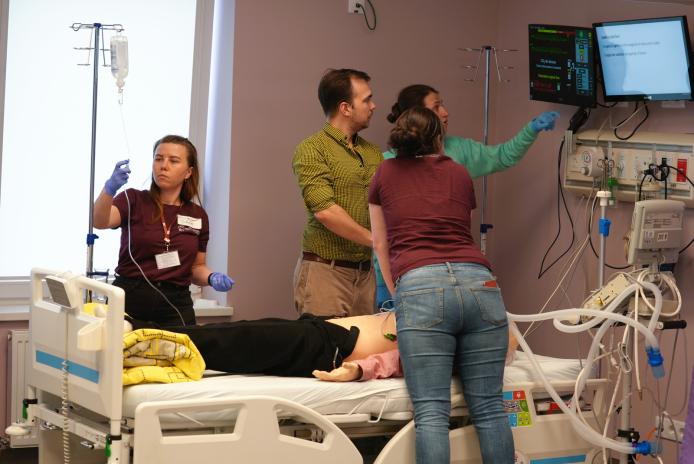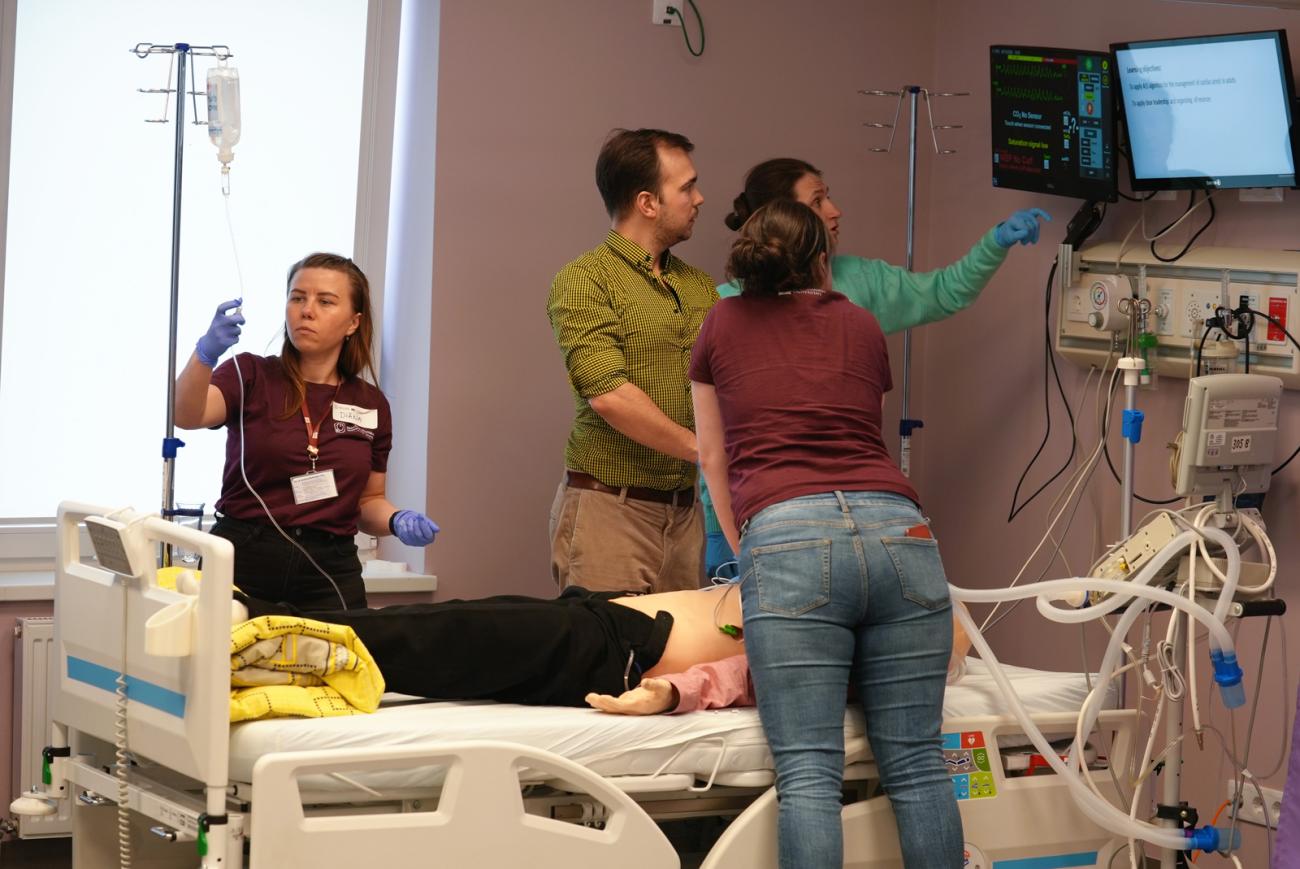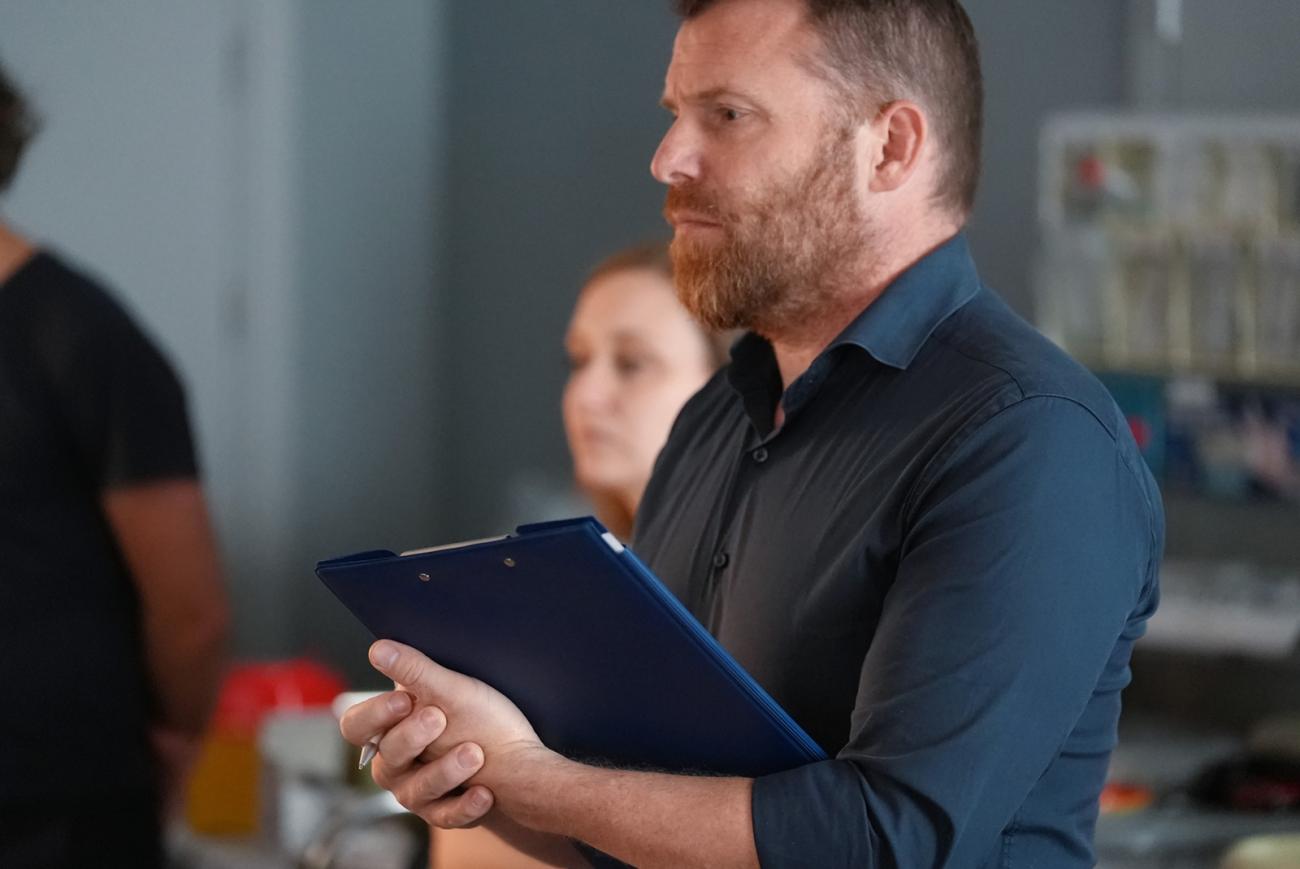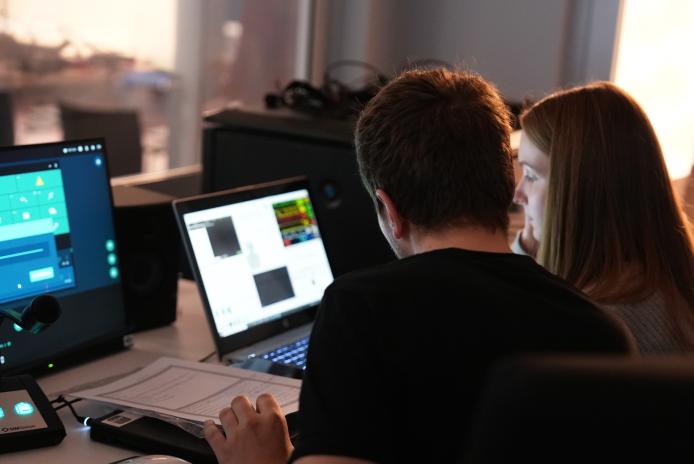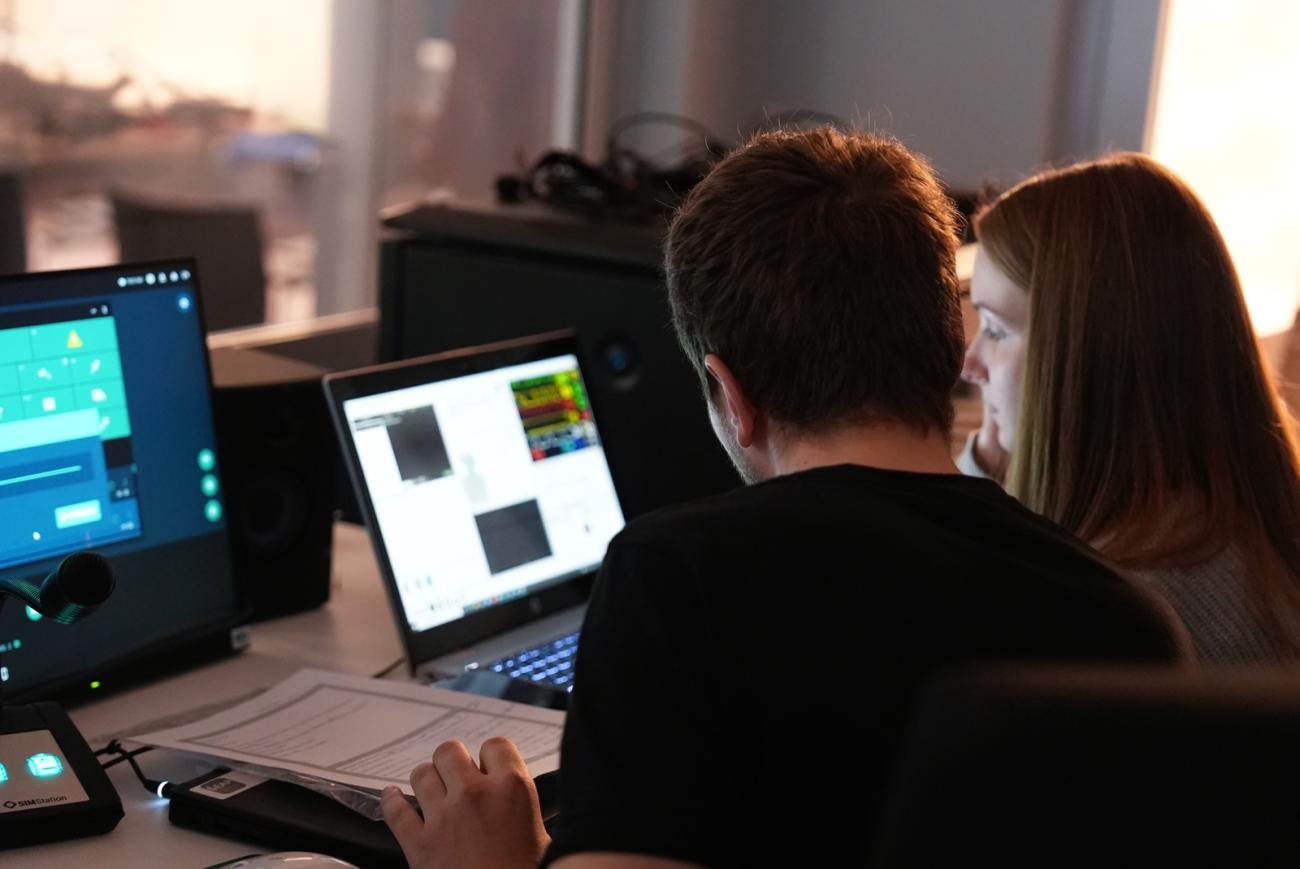RSU invests in its educators with EuSim simulation instructor training
To continue expanding on an active educational programme for the development of simulation-based educational approaches, the Rīga Stradiņš University (RSU) Medical Education Technology Centre (METC) implemented a high-level training course, the EuSim Simulation Instructor Course (Level 1). During this course, five clinical simulation instructors from the METC and eleven lecturers from different RSU departments – Clinical Skills and Medical Technology, Internal Medicine, Obstetrics and Gynaecology, and Infectology – improved their skills and knowledge in simulation-based educational approach methodology and obtained internationally recognised EuSim simulation instructor course certificates.
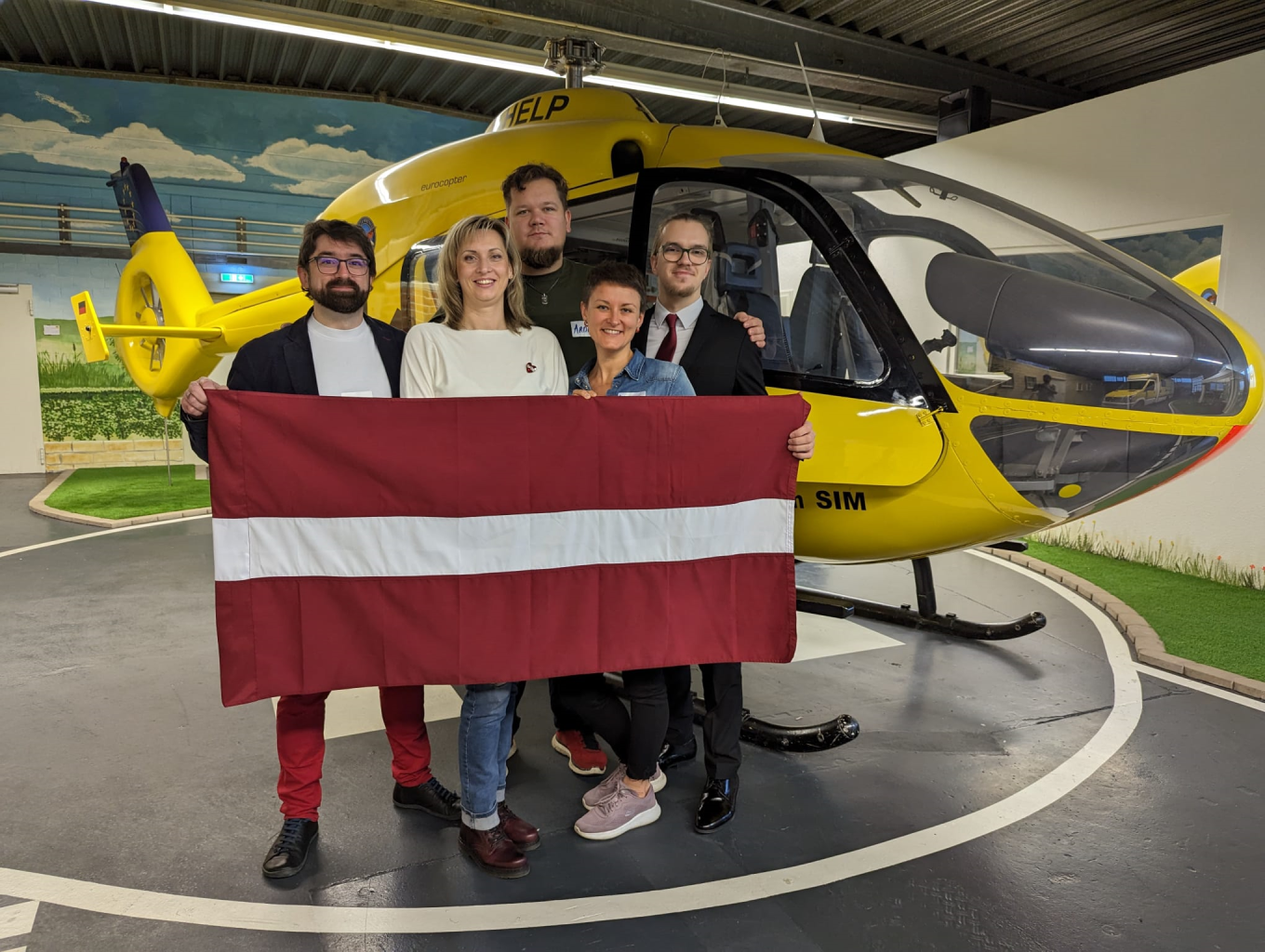
The METC team in Germany
EuSim is an organisation that has developed this programme by bringing together simulation centres and instructors from different countries with the aim of providing high quality, common standards-based training for clinical instructors. During the course, six clinical scenarios were developed and practised, which gave the participants the opportunity not only to improve their competences but also to receive valuable feedback from course instructors – Fouad Marhar from France, Hilde Klippen Hetland from Norway, and Kai Kranz from Switzerland. The course also gave participants insight into how the instructors implement simulations in different educational institutions and simulation centres in Norway, France, and Germany. The course instructor, Hilde Klippen Hetland, commented, ‘Thank you very much for the opportunity to deliver the EuSim Level 1 course in Riga. RSU is an enthusiastic team with a lot of expertise and potential. We wish you every success in becoming the leading simulation centre in Latvia and part of the EuSim network. As we say in Norway: “train like you fight”.’
During the course, the representatives from EuSim also met with RSU Vice-Rector for Health Studies Assoc. Prof. Andris Skridis to discuss the METC’s future development plans and the possibility to be certified as an official EuSim representative to become a leader in simulation in the region. ‘As the leading simulation institution in the Baltics, it is important for us to be included in European organisations, thus further improving the quality and skills of education for healthcare students. Our simulation centre is well developed and we can not only learn from others but also contribute to the development of simulation processes in Europe,’ says Assoc. Prof. Skride.
The cooperation between METC and EuSim started in October 2023 when five METC instructors attended the EuSim Level 1 course at the ADAC HEMS Academy in Germany with the aim to learn about international practices and integrate similar courses into the RSU and METC instructor education programme to strengthen the qualifications of already experienced lecturers and to give new lecturers the opportunity to learn about internationally recognised methodologies. The METC’s future plans include organising two more such courses, as well as obtaining EuSim Training Organisation status so that the METC team can deliver these types of courses themselves, both for RSU staff and for specialists from other simulation centres.
This cooperation and the implementation of the courses is an important step forward in RSU becoming a leading simulation centre in the region. As Aleksandrs Oborins, Head of Simulation-Based Education Development at METC, points out, the knowledge, skills and professional experience of RSU lecturers and METC staff are highly valued among international colleagues. Therefore, the next important step to maintain and improve quality is to integrate international accreditation, including EuSim courses, at the METC. ‘We are actively working to ensure that all RSU lecturers have the opportunity to obtain high-quality and internationally recognised certification in clinical simulation,’ said Oborins.
Related news
 Teaching future cardiologists: insights from Dr. Philipp at RSU’s Stade BranchFor Students, International Cooperation, Stade
Teaching future cardiologists: insights from Dr. Philipp at RSU’s Stade BranchFor Students, International Cooperation, Stade